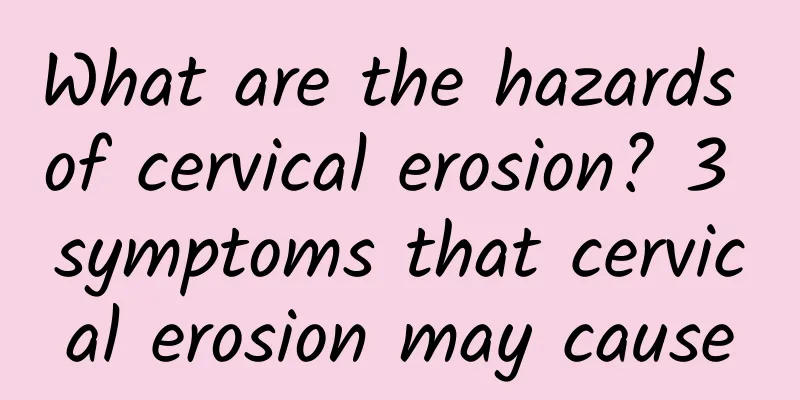Popular Science: Your lingering period may be related to these diseases!

|
My period just won't go away. What's going on? According to doctors, a normal period usually lasts 2-8 days. If it lasts for more than 10 days, you should consider other reasons. If women who have their periods only occur during adolescence have this condition, it may be because their ovarian function has not yet fully matured and their endocrine system is unbalanced. After a long period of time, the menstrual period will return to normal. In this case, women don't need to worry too much. But for adult women, if this happens, you should consider whether it is a gynecological disease. The lingering period may be related to these diseases! 1. Pelvic inflammatory disease: Pelvic inflammatory disease can be divided into acute and chronic. Usually, after the acute pelvic inflammatory disease is effectively treated, there will be no chronic pelvic inflammatory disease. However, some women are reluctant to see a doctor and keep delaying treatment, which eventually leads to the occurrence of chronic pelvic inflammatory disease. 2. Uterine disease: I believe everyone knows the importance of the uterus. After all, everyone has only one. Uterine diseases include uterine fibroids, endometritis, functional uterine bleeding, etc. It is recommended to go to the hospital for an examination to determine the cause of the disease. 3. Placement of IUD: Some women want to be a permanent contraceptive after giving birth, so they will choose to have an IUD. However, some women have more sensitive bodies, and their bodies will have rejection reactions after having an IUD, such as irregular menstruation, a small amount of bleeding or brown discharge. 4. Medical abortion: The drugs taken for medical abortion will destroy the balance of hormone levels in the body and cause hormone disorders. Some women will experience abnormal menstrual cycles and prolonged bleeding. If some women take medical abortion for more than 2 weeks, they should go to the hospital for a B-ultrasound check in time to see if the residues in the uterine cavity have been drained out. If not, they must undergo a uterine curettage in time to avoid infection of the uterine cavity caused by these residues. Warm reminder: In addition to the diseases mentioned above, it may also be related to other factors in daily life. It is recommended that you develop good living habits. If the menstrual condition is still not relieved, seek medical treatment in time. |
<<: Don’t let premature ovarian failure end your youth
>>: Early symptoms of ectopic pregnancy Know these symptoms to detect ectopic pregnancy in time
Recommend
Key points for diagnosis of vulvar pruritus
Vulvar pruritus is a common gynecological disease...
Is it difficult to lose weight? It turns out that the body lacks enzymes
Is your journey to weight loss always full of twi...
What are the symptoms of cervical erosion?
What are the symptoms of cervical erosion? Recent...
How to treat amenorrhea caused by premature ovarian failure
How to treat amenorrhea caused by premature ovari...
What are the clinical manifestations of pelvic inflammatory disease?
The clinical manifestations of pelvic inflammator...
What are the characteristics of patients with endometrial tuberculosis?
Endometrial tuberculosis mainly occurs in women o...
How much does it cost to recover from menopause?
A detailed introduction to the cost of menopause ...
Is it necessary to cut out sugar to lose weight? Japanese nutritionist explains the myths and teaches you how to cook delicious multi-grain rice
In recent years, many women have actively tried t...
What are the causes of pelvic inflammatory disease?
Pelvic inflammatory disease refers to the symptom...
The treatment of functional uterine bleeding in adolescence cannot be ignored
Dysfunctional uterine bleeding during adolescence...
What exactly is candidal vaginitis?
What is candidal vaginitis ? What are the specifi...
Introduction to Hyperprolactinemia Hospital
The introduction of the hospital for hyperprolact...
What are the effects of intrauterine adhesions and cervical adhesions on fertility? What are the hazards of intrauterine adhesions?
The uterine cavity is where the fertilized egg im...
How is cervical hypertrophy diagnosed?
Cervical hypertrophy is a common gynecological di...
The harm of not timely treatment of cervical precancerous lesions
Cervical precancerous lesions are a major killer ...









